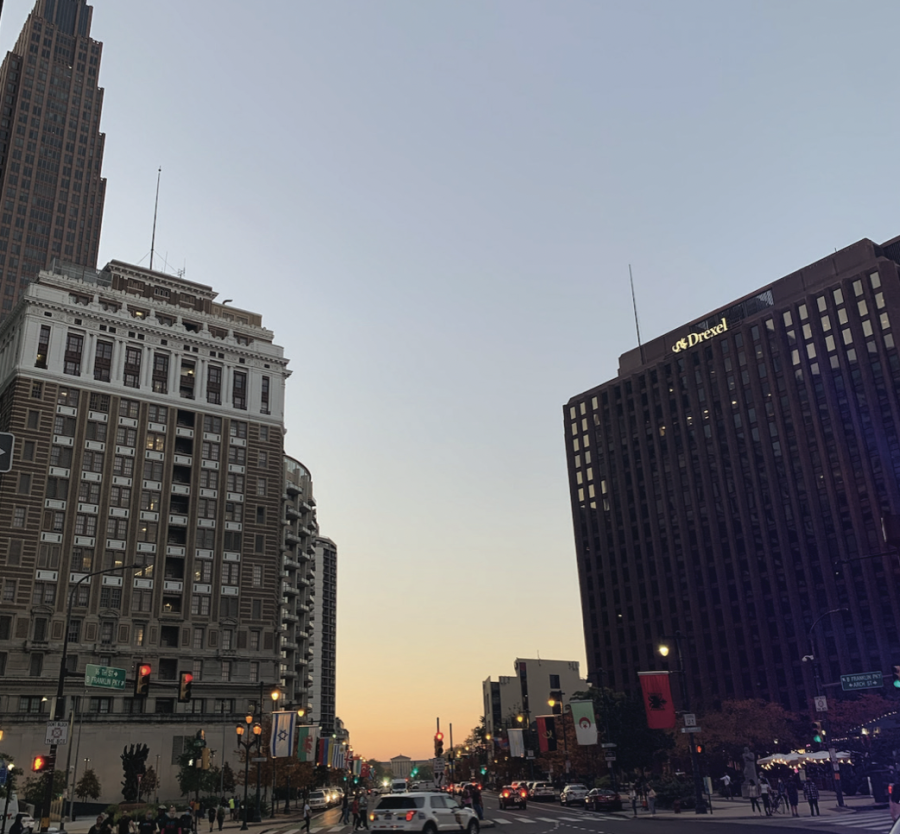Philadelphia’s Opioid Crisis: How can we help?
Jackie Thomas/Villanovan Photography
The opioid crisis has become a major problem in Philadelphia in recent years.
February 2, 2023
Since the COVID-19 pandemic, Philadelphia has experienced extremely high levels of opioid addiction, overdose and death as the opioid epidemic has gained a greater presence in the U.S.
Within my first few weeks back on campus, I had not heard or seen much regarding the current opioid crisis, despite Philadelphia being such an integral part of the Villanova experience for many of us students. As both a University and student body, it is important that we educate ourselves on this topic given the high likelihood that a fellow student, professor or faculty member is currently being affected by opioid addiction, either directly or indirectly.
I reached out to Communications Professor Gordon Coonfield to learn more about opioid addiction and its current status in Philadelphia. As a Philadelphia resident, he has seen the devastating results of opioid addiction first-hand and has learned a lot about this epidemic and its surrounding causes and effects. First and foremost, he emphasized the need to educate ourselves on opioid addiction as it could target anybody, and strike at any age.
We discussed what he calls the “triangle” behind opioid addiction, and how the points interlink with one another. The three points, which are narcotic availability, poverty and trauma, each contribute to the continual cycle of addiction and dependence. Cheaply available narcotics such as fentanyl, alongside generational poverty and past and present physical traumas have entrenched many Philadelphia neighborhoods, continuing to exacerbate a devastating situation.
“Compassion is a big aspect of this,” Professor Coonfield said. As a University, a way we can demonstrate compassion is by reorienting the way we look at addiction. Addiction is a disease, and oftentimes this can be forgotten as those with Substance Abuse Disorder are sometimes looked at as problems to be fixed, rather than people who are struggling to overcome the impossible. This addiction affects our workers, veterans, family and friends, and blaming and imprisoning those afflicted with it only perpetuates and worsens the situation.
As a University, Villanova should work towards providing Naloxone, a medication which prevents the effects of opioids, at University sights as well as provide and spread information about where it can be found. Services such as recovery specialists for students and faculty who may be experiencing, or know someone experiencing opioid addiction, should be made readily available.
At a student level, there are many things we can do in regards to local assistance and situational awareness surrounding opioid addiction. Anything we can do to alleviate poverty and the effects of poverty in Philadelphia is a start: many people who have Substance Abuse Disorder are homeless or in deep poverty, though this is not always the case.
A tangible way we can work towards alleviating the effects of poverty is by volunteering or donating to shelters and soup kitchens in the Philadelphia area. Professor Coonfield recommended a soup kitchen he personally has experience with in Philadelphia named St. Francis Inn, which is also referenced on the Community Outreach of Villanova (COV) page. To find more places like this in the Philadelphia area, the campus ministry website has provided many resources under their Social Justice tab.
Going to a University near a city like Philadelphia provides us so many opportunities, and it is our responsibility as students and educators to return the favor in any way possible. Reorienting our attitudes and actively educating ourselves on situations such as the opioid crisis is essential as it is not only affecting Philadelphia, but likely many people within the Villanova community as well.










